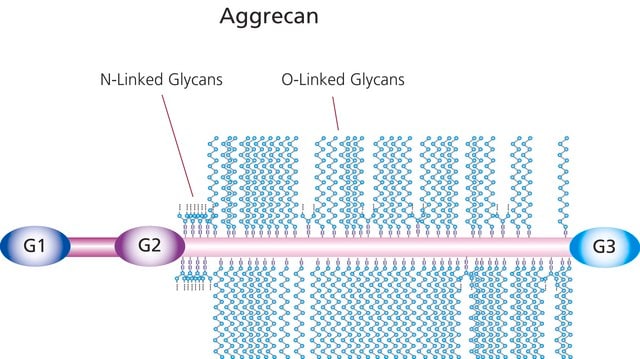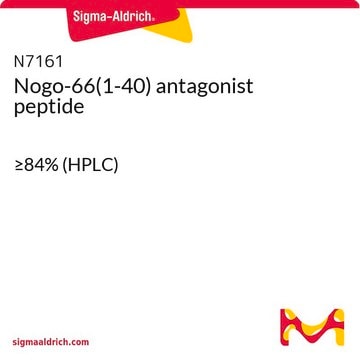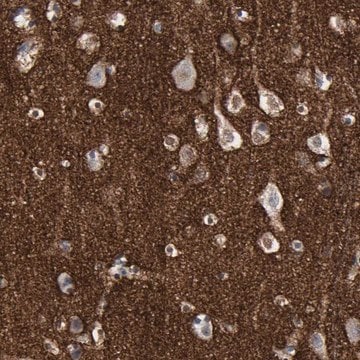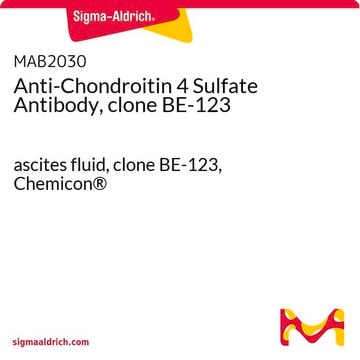C2905
Chondroitinase ABC from Proteus vulgaris
lyophilized powder, 0.3-3 units/mg solid
Sinónimos:
Chondroitin ABC Lyase
About This Item
Productos recomendados
biological source
bacterial (Proteus vulgaris)
Quality Level
conjugate
(Glucosaminoglycan)
form
lyophilized powder
specific activity
0.3-3 units/mg solid
mol wt
~120 kDa by gel filtration
composition
Protein, ~35% biuret
application(s)
diagnostic assay manufacturing
storage temp.
−20°C
¿Está buscando productos similares? Visita Guía de comparación de productos
Application
Biochem/physiol Actions
Packaging
Unit Definition
Physical form
Preparation Note
Other Notes
Storage Class
11 - Combustible Solids
wgk_germany
WGK 3
flash_point_f
Not applicable
flash_point_c
Not applicable
ppe
Eyeshields, Gloves, type N95 (US)
Certificados de análisis (COA)
Busque Certificados de análisis (COA) introduciendo el número de lote del producto. Los números de lote se encuentran en la etiqueta del producto después de las palabras «Lot» o «Batch»
¿Ya tiene este producto?
Encuentre la documentación para los productos que ha comprado recientemente en la Biblioteca de documentos.
Los clientes también vieron
Artículos
Uncover more about glycosaminoglycans and proteoglycans including the structure of glycosaminoglycans (GAGs), the different types of GAGs, and their functions.
Uncover more about glycosaminoglycans and proteoglycans including the structure of glycosaminoglycans (GAGs), the different types of GAGs, and their functions.
Uncover more about glycosaminoglycans and proteoglycans including the structure of glycosaminoglycans (GAGs), the different types of GAGs, and their functions.
Uncover more about glycosaminoglycans and proteoglycans including the structure of glycosaminoglycans (GAGs), the different types of GAGs, and their functions.
Nuestro equipo de científicos tiene experiencia en todas las áreas de investigación: Ciencias de la vida, Ciencia de los materiales, Síntesis química, Cromatografía, Analítica y muchas otras.
Póngase en contacto con el Servicio técnico














